Trial design for prediction
Experimental design is an under-appreciated aspect of data science, where better design leads to more efficient parameter estimation and possibilities to address causality. We have experience in experimental design from the STHLM3 trial [1]. We will contribute to two new studies:
- the STHLM3-MRI study to assess the combination of the S3M test with magnetic resonance imaging (MRI), and
- the ProBio randomised treatment trial for men with metastatic prostate cancer.
The STHLM3-MRI study will use a novel design, with a paired, screen-positive design followed by a randomisation step for use of systematic or MRI-guided biopsy. Methods are required to combine this two-phase design with marginal models. We will also develop methods and software (a) using the bootstrap to solve for specific test characteristics and (b) to evaluate new biomarkers using a missing data formulation [M2.3, D2.1]. This study, which depends critically on SeRC methods, is expected to have high impact leading to changes in standard clinical care over 2-5 years.
For the ProBio study, we hypothesise that treatment decisions based on molecular profiling using circulating tumor DNA (ctDNA) will significantly improve survival for metastatic prostate cancer. Drug assignment will be based on a novel Bayesian algorithm using data accumulated in the trial [M2.1]. ProBio’s design is complex and novel, and will make integral use of key eScience tools. To assess the impact of different assumptions on the trial design, we are implementing a trial simulation engine. As proof of concept, ProBio received approval from the Swedish Medical Product Agency based on the simulation results. Running the trial will require a complex IT infrastructure for (a) the bioinformatics pipeline downstream of the ctDNA assay [M2.2] and (b) the outcome-adaptive design [M2.2, M2.4]. We expect the trial to accrue the first patient Q1 2019 and first results to be published in 2020 [D2.3].




